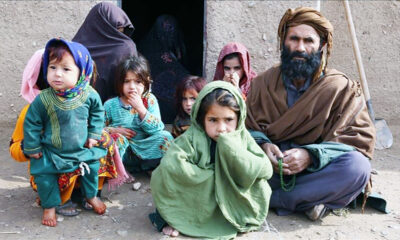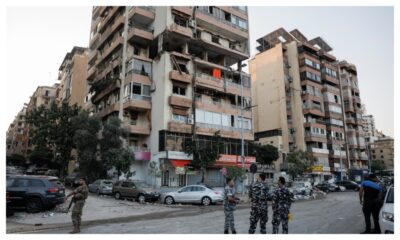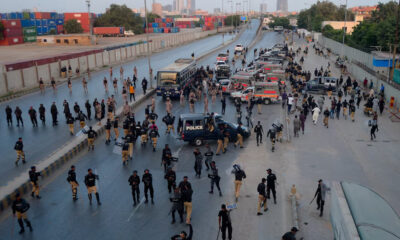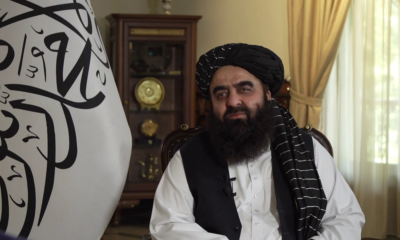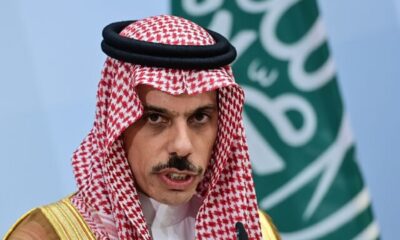World
Nepal closes schools as deaths from heavy rains hit 151
The floods brought traffic and normal activity to a standstill in the Kathmandu valley, where 37 deaths were recorded in a region home to 4 million people and the capital.
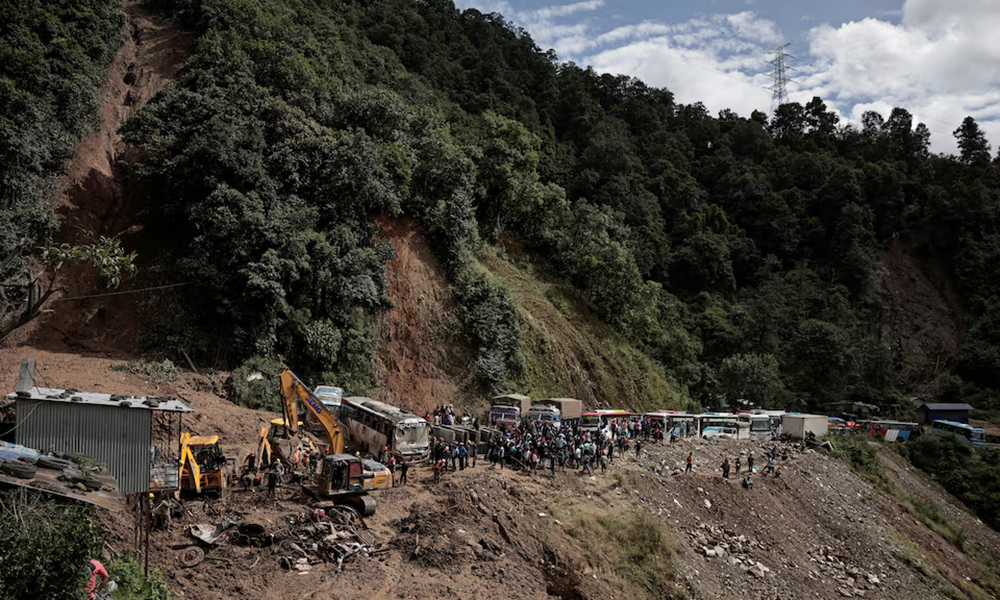
Nepal has shut schools for three days after landslides and floods triggered by two days of heavy rain across the Himalayan nation killed 151 people, with 56 missing, officials said on Sunday.
The floods brought traffic and normal activity to a standstill in the Kathmandu valley, where 37 deaths were recorded in a region home to 4 million people and the capital.
Authorities said students and their parents faced difficulties as university and school buildings damaged by the rains needed repair.
"We have urged the concerned authorities to close schools in the affected areas for three days," Lakshmi Bhattarai, a spokesperson for the education ministry, told Reuters.
Some parts of the capital reported rain of up to 322.2 mm (12.7 inches), pushing the level of its main Bagmati river up 2.2 m (7 ft) past the danger mark, experts said.
But there were some signs of respite on Sunday morning, with the rains easing in many places, said Govinda Jha, a weather forecaster in the capital.
"There may be some isolated showers, but heavy rains are unlikely," he said.
Television images showed police rescuers in knee-high rubber boots using picks and shovels to clear away mud and retrieve 16 bodies of passengers from two buses swept away by a massive landslide at a site on the key route into Kathmandu.
Weather officials in the capital blamed the rainstorms on a low-pressure system in the Bay of Bengal extending over parts of neighbouring India close to Nepal.
Haphazard development amplifies climate change risks in Nepal, say climate scientists at the International Centre for Integrated Mountain Development (ICIMOD).
"I’ve never before seen flooding on this scale in Kathmandu," said Arun Bhakta Shrestha, an environmental risk official at the centre.
In a statement, it urged the government and city planners to "urgently" step up investment in, and plans for, infrastructure, such as underground stormwater and sewage systems, both of the "grey", or engineered kind, and "green", or nature-based type.
The impact of the rains was aggravated by poor drainage due to unplanned settlement and urbanisation efforts, construction on floodplains, lack of areas for water retention, and encroachment on the Bagmati river, it added.
The level in the Koshi river in Nepal's southeast has started to fall, however, said Ram Chandra Tiwari, the region's top bureaucrat.
The river, which brings deadly floods to India's eastern state of Bihar nearly every year, had been running above the danger mark at a level nearly three times normal, he said.
World
Israeli strikes kill Hamas leader in Lebanon and three Palestinian leaders in Beirut
Israel’s attacks on Hezbollah and Houthi militias raise fears of wider conflict
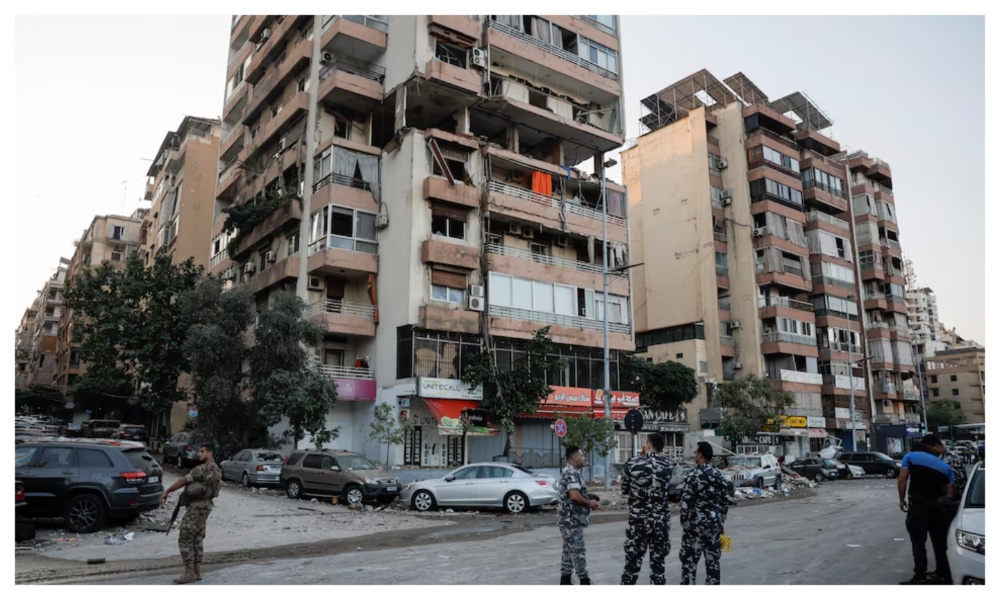
Palestinian militant group Hamas said an Israeli strike killed its leader in Lebanon on Monday, while another Palestinian militant group said three of its leaders were killed in a strike on Beirut, the first attack within the city limits.
Hamas said its leader in Lebanon, Fateh Sherif Abu el-Amin was killed, along with his wife, son, and daughter, in a strike that targeted their house in a Palestinian refugee camp in the southern city of Tyre in the early hours of Monday.
As Israel escalates hostilities against Iran's allies in the region, the Popular Front for the Liberation of Palestine (PFLP) said three of its leaders were killed in a strike that targeted Beirut's Kola district.
The strike hit the upper floor of an apartment building, Reuters witnesses said.
There was no immediate comment from Israel's military.
Israel's increasing frequency of attacks against the Hezbollah militia in Lebanon and the Houthi militia in Yemen have prompted fears that Middle East fighting could spin out of control and draw in Iran and the United States, Israel's main ally.
The PFLP is another militant group taking part in the fight against Israel.
Israel on Sunday launched airstrikes against the Houthi militia in Yemen and dozens of Hezbollah targets throughout Lebanon after earlier killing the Hezbollah leader.Lebanon's Health Ministry has said more than 1,000 Lebanese have been killed and 6,000 wounded in the past two weeks, without saying how many were civilians.
The government said a million people - a fifth of the population - have fled their homes.
The intensifying Israeli bombardment over two weeks has killed a string of top Hezbollah officials, including its leader Sayyed Hassan Nasrallah.
Israel has vowed to keep up the assault and says it wants to make its northern areas secure again for residents who have been forced to flee Hezbollah rocket attacks.
Israeli drones hovered over Beirut for much of Sunday, with the loud blasts of new airstrikes echoing around the Lebanese capital.
World
Regional politicians, others react to killing of Hezbollah’s Nasrallah
IRAN’S FOREIGN MINISTRY: The ministry said in a statement that Nasrallah’s “path will continue and his goal will be realised in Jerusalem’s liberation”.
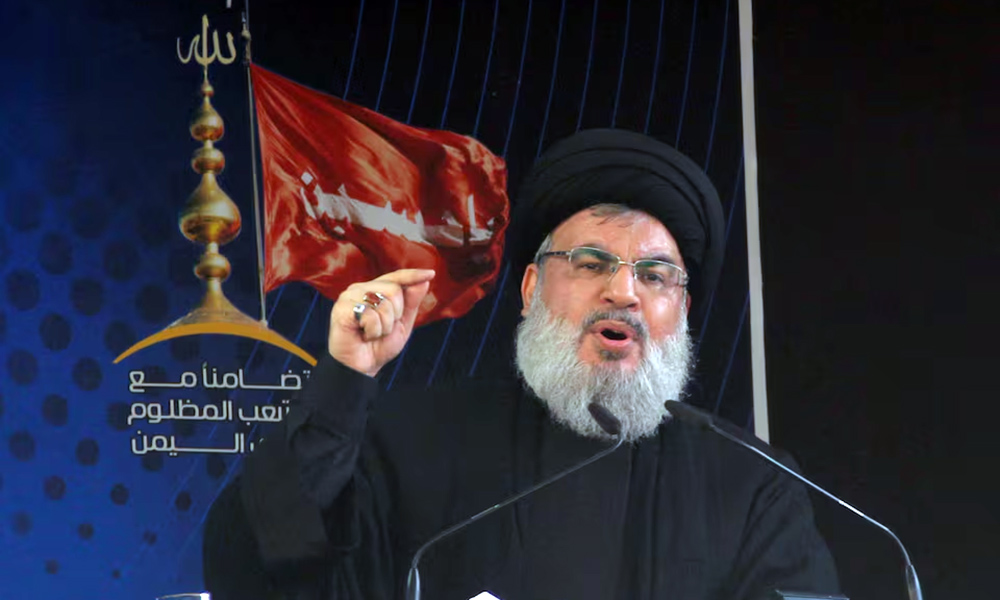
Following are reactions by regional politicians and others to the killing of Hezbollah leader Sayyed Hassan Nasrallah in an Israeli airstrike in Beirut on Friday:
IRAN'S FOREIGN MINISTRY
The ministry said in a statement that Nasrallah's "path will continue and his goal will be realised in Jerusalem's liberation".
PALESTINIAN PRESIDENT MAHMOUD ABBAS
Abbas offered his condolences to Lebanon and Hezbollah, the official Palestinian news agency WAFA said. "The President extended his heartfelt sympathies to the Lebanese government and the brotherly people of Lebanon over the civilian casualties resulting from the ongoing Israeli aggression," WAFA said.
YEMEN'S IRAN-ALIGNED HOUTHIS
The group said it mourned the killing of Nasrallah, adding: "The martyrdom ... will increase the strength of sacrifice ... determination and continuity."
MOHAMMED SHIA AL-SUDANI, IRAQ'S PRIME MINISTER
He said the killing of Nasrallah showed "the reckless desire to expand the conflict at the expense of all the peoples of the region and their security and stability".
HERZI HALEVI, ISRAEL'S CHIEF OF THE GENERAL STAFF
"Nasrallah indiscriminately murdered Israeli civilians and aimed to end this war with the destruction of the State of Israel. We made sure that did not occur. We eliminated him, and we will continue to grow stronger. Hezbollah has murdered innocent people worldwide, hiding his weapons under the homes of families, women and children and turning them into human shields. As we have shown, we will not allow such a threat to our citizens. We are determined to continue destroying the Hezbollah terrorist organization and to keep fighting."
MOQTADA EL SADR, IRAQI SHI'ITE MUSLIM POLITICIAN
He said he mourned Nasrallah as "his companion in resistance".
GEBRAN BASSIL, LEADING LEBANESE CHRISTIAN POLITICIAN
He said he mourned the death of Nasrallah as a major loss and said it was a hard time for all Lebanese, adding: "In the face of the Israeli enemy, we have no choice but to be together as Lebanese."
MICHEL AOUN, FORMER LEBANESE PRESIDENT
In a statement mourning Nasrallah, he referred to "the dangers our country is witnessing as a result of the ongoing Israeli aggression which requires rising to the highest level of national solidarity that protects and fortifies our unity because that is the true salvation".
SAAD AL-HARIRI, FORMER LEBANESE PRIME MINISTER
"The assassination of Sayyed Hassan Nasrallah has plunged Lebanon and the region into a new phase of violence. It is a cowardly act condemned in its entirety by us, who paid dearly for the lives of our loved ones when assassination became an alternative to politics. May God have mercy on Sayyed Hassan and my sincere condolences to his family and comrades. We often disagreed with the deceased and his party and met a few times, but Lebanon was everyone's tent. In this extremely difficult phase, our unity and solidarity remain the foundation."
TURKISH PRESIDENT TAYYIP ERDOGAN
In a post on X after the killing of Nasrallah but which did not name him, Erdogan said he condemned recent attacks in Lebanon as part of what he called an Israeli policy of "genocide, occupation, and invasion" and said the Muslim world should show a more "determined" stance.
Regional
Iran calls for UN Security Council meeting after Hezbollah’s leader killed
The strike followed the assassination of some of the group’s most senior leaders over recent weeks.
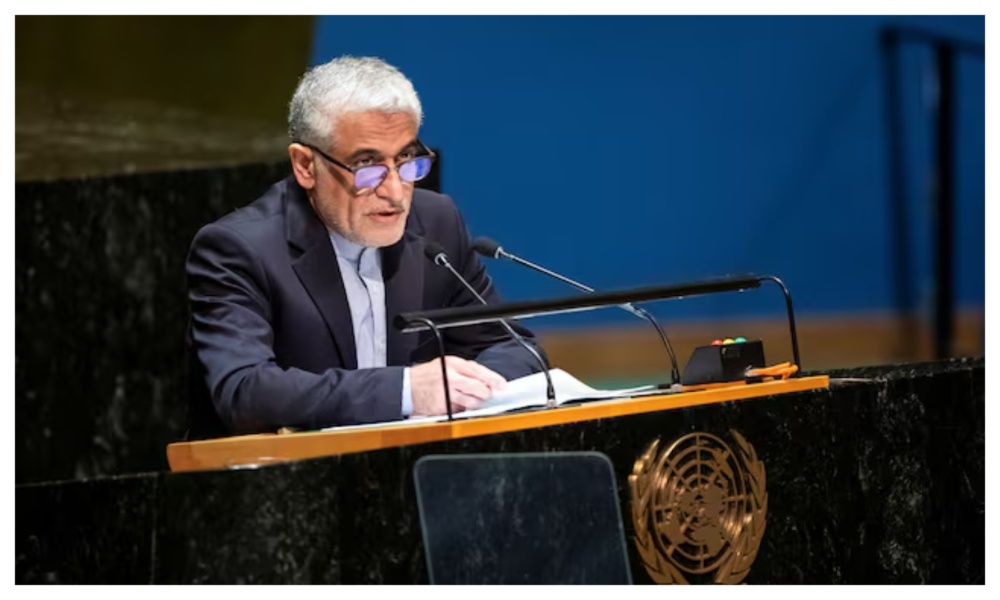
Iran on Saturday called for the United Nations Security Council to meet over Israel's actions in Lebanon and across the region, Iran's U.N. ambassador Amir Saeid Iravani wrote in a letter to the 15-member body after Israel killed Hezbollah leader Sayyed Hassan Nasrallah.
"The Islamic Republic of Iran strongly warns against any attack on its diplomatic premises and representatives in violation of the foundational principle of the inviolability of diplomatic and consular premises and reiterates that it will not tolerate any repeat of such aggression," he wrote.
"Iran will not hesitate to exercise its inherent rights under international law to take every measure in defense of its vital national and security interests," Iravani said.
Israel carried out its deadly strike against Hezbollah leader Hassan Nasrallah after learning he would be meeting senior commanders in the movement's underground headquarters in southern Beirut, the Israeli military said on Saturday.
The strike, shortly after Prime Minister Benjamin Netanyahu told the United Nations General Assembly in New York that Israel would not accept Hezbollah's forces on its borders, followed the assassination of some of the group's most senior leaders over recent weeks.
Israeli military spokesperson, Lieutenant Colonel Nadav Shoshani said the operation, which the military called "New Order", occurred on Friday while Nasrallah and the Hezbollah senior chain of command were meeting to plan further attacks against Israel.
"We had real time intelligence, an opportunity, an operational opportunity that allowed us to carry out this attack," he told reporters.
Israel's Army Radio quoted the head of the air force squadron that conducted the attack as saying the pilots were only given details of the target a short time before taking off.
"The pilots did not know what the target was in the days the (strike) was being planned," the officer, identified only as Lieutenant Colonel M., was quoted as saying.
"We exposed the teams to the target only a few hours before carrying it out and they understood what they were going for."
Shoshani declined to comment on speculation that the strike may have used U.S.-made Mark 84 heavy bombs, but Brigadier General Amichai Levin, commander of Hatzerim air base, told reporters that dozens of munitions hit the target within seconds.
Ali Karaki, the head of Hezbollah's southern front, whom Israel tried to kill earlier in the week, was also killed in the raid, Shoshani said.
Hezbollah, which launched its first barrages a day after the Hamas attack on Israel on Oct. 7 last year, confirmed Nasrallah's death and said it would continue its battle against Israel "in support of Gaza and Palestine, and in defence of Lebanon".
Since then, the two sides have been exchanging daily missile and rocket fire, forcing tens of thousands of people on both sides of the border to evacuate and leaving wide areas virtually deserted.
-

 Sport5 days ago
Sport5 days agoFutsal World Cup: Afghanistan going in to game against Paraguay ‘to win’
-
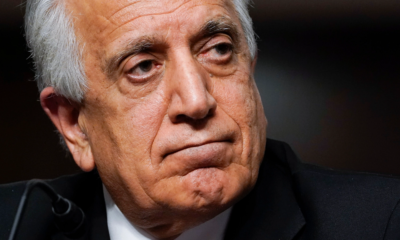
 Latest News4 days ago
Latest News4 days agoKhalilzad responds to McCaul’s draft resolution, says Doha agreement claim is ‘flatly untrue’
-

 Latest News4 days ago
Latest News4 days agoIranian president stresses need for cooperation with Tajikistan over Afghanistan
-

 Regional4 days ago
Regional4 days agoPakistan PM Sharif welcomes IMF’s $7 billion funding agreement
-

 Sport4 days ago
Sport4 days agoVenezuela stun Spain while Paraguay down Afghanistan in knock-out stage of Futsal WC
-

 Latest News4 days ago
Latest News4 days agoUzbekistan says it follows ‘pragmatic policy’ towards Afghanistan
-
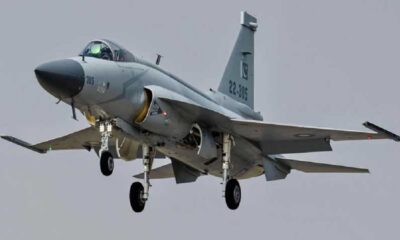
 Regional3 days ago
Regional3 days agoPakistan signs contract to sell JF-17 fighter jets to Azerbaijan
-
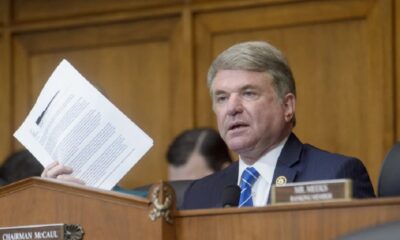
 Latest News4 days ago
Latest News4 days agoUS House approves Republicans’ resolution condemning Biden and Harris over Afghanistan withdrawal


